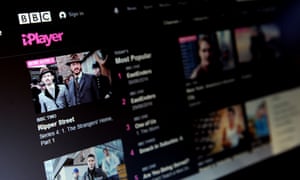|
|
Mon
|
Tue
|
Wed
|
Thu
|
Fri
|
Sat
|
Sun
|
|
P1
|
|
|
|
|
|
|
|
|
P2
|
Theory Quotes
Section A
|
|
New & Digital
Media Lessons
Section B
|
|
|
Section B Questions
|
|
|
P3
|
Section A: Q2/3
|
|
|
|
Section B Questions
|
|
|
|
P4
|
|
|
|
|
NDM Case Studies
Section B
|
New and Digital Media:
Useful Revision
Articles
Section B
|
|
|
P5
|
'Identities & The Media' Lessons
Section A
|
|
|
|
Unit 3 Key Theories
|
|
|
|
P6
|
|
|
|
|
NDM Theories
/Issues/
Debates Summaries
|
'Identities & The Media' Lessons
Section A
|
|
|
After School
5:30pm to 7:30pm
|
Revision Express Textbook
Section A
|
|
NDM Quotes + Marxism/
Pluralism
Section B
|
|
|
|
Theory Quotes
Section A
|
|
8pm to 9:30pm
|
|
|
New and Digital Media:
Useful Revision
Articles
Section B
|
|
|
|
NDM Quotes + Marxism/
Pluralism
Section B
|
MEST 3
Tuesday 23 May 2017
Revision Plan
Monday 22 May 2017
Week 37 Story 75 Google tried to block media coverage of gender discrimination case
Google tried to block media coverage of gender discrimination case
https://www.theguardian.com/technology/2017/may/22/google-gender-discrimination-case-reporting-restricted
Google has tried to restrict reporting on a high-stakes gender discrimination case brought by the US government and fought to have the case thrown out of court because of a federal attorney’s comments to a reporter.
Google also attempted to restrict press access during a hearing last month. Following a private meeting with the judge about the Guardian’s reporting, Google’s attorney requested that the proceeding be closed to the media before continuing, but a DoL attorney objected and the judge sided with the government.
Jennifer Schwartz, another attorney who has represented women in Silicon Valleycases, noted that the wage gap has been widely documented in the tech industry and that Google should not be resisting independent scrutiny.
Week 37 Story 74 - Mass surveillance ruled out as BBC iPlayer loophole closes

]
Mass
surveillance ruled out as BBC iPlayer loophole closes
Mass surveillance will not be used to catch people who watch
catch-up BBC content following the introduction on Thursday of new rules to
close the “iPlayer loophole”. Enforcement body TV Licensing said it expected
the vast majority of people to “obey the rules” which extend the requirement
for a licence beyond live viewing.
Reports had suggested that the BBC would use a new “fleet”
of detector vans to monitor Wi-Fi connections for people using iPlayer.
However, a spokesman for TV Licensing told Press Association it did not plan to
carry out any form of mass surveillance.
“We expect most people will simply obey the law,” he said.
“We are not going to use mass surveillance techniques, we are not going to ask
internet providers for IP addresses, and in fact we will simply use existing
enforcement processes and techniques which we believe to be adequate and
appropriate.”
Week 37 Story 73- BBC iPlayer loophole closes as licence required for catchup TV

BBC iPlayer
loophole closes as licence required for catchup TV
A BBC source said: “There are no plans for people to enter
their licence details into BBC iPlayer at present because TV Licensing has a
range of enforcement techniques they’ll continue to use. We’ll look at how
effective these are before considering whether an extra verification system is
required.”Previous reports that the BBC would begin snooping on Wi-Fi connections
to check whether people are using iPlayer are understood to be wide of the
mark. However, neither the BBC nor TV Licensing will reveal details of how they
plan to detect lawbreakers.
A TV Licensing spokesman said: “We know the vast majority of
people are law-abiding and would anticipate those who need a licence for the
first time will buy one. We have a range of enforcement techniques which we use
and these have already allowed us to prosecute people who watch on a range of
devices, not just TVs.”Monitoring Wi-Fi connections en masse would be expensive
and potentially illegal. The BBC is entitled to use powers under the Regulation
of Investigatory Powers Act to carry out surveillance on people it suspects of
using BBC services without a licence. However, this is more likely to take the
form of surveilling homes to view or hear people watching BBC content.
Tuesday 16 May 2017
Week 36 Story 72 'Facebook team working on brain-powered technology'
'Facebook team working on brain-powered technology'
http://www.bbc.co.uk/news/technology-39648788
- Facebook says it is working on technology to allow us to control computers directly with our brains
- It is developing “silent speech” software to allow people to type at a rate of 100 words per minute, it says
- With these announcements, Facebook is envisioning technology that is far in advance of anything currently possible
With the rise of fake news and other important aspects involving Facebook as a core source of many of today's problems, it's interesting to see that they are trying to ignite the purpose of the social media by trying to attempt new technology.
Week 36 Story 71 How will the BBC detect people watching iPlayer without a licence?

How will the BBC detect people watching iPlayer without a licence?
Tales of vans driving around peeking into people’s homes to catch them watching the BBC without a TV licence have been a staple of the right-wing press for years (and more recently, an extremist wing of anti-TV licensing Twitter) but this weekend the Telegraph put an alarming new twist on the story.
- “BBC vans to snoop on internet users” cried the headline, warning that from next month a fleet of vehicles will “fan out across the country capturing information from private Wi-Fi networks in hopes to ‘sniff out’ those who have not paid the licence fee”.
The story was based on a report published by the National Audit Office last month, which said the BBC had demonstrated its ability to detect people watching live programming (the Telegraph decided not to mention the reference to live viewing only) on a “range of non-TV devices”.
Monday 15 May 2017
Subscribe to:
Posts (Atom)

